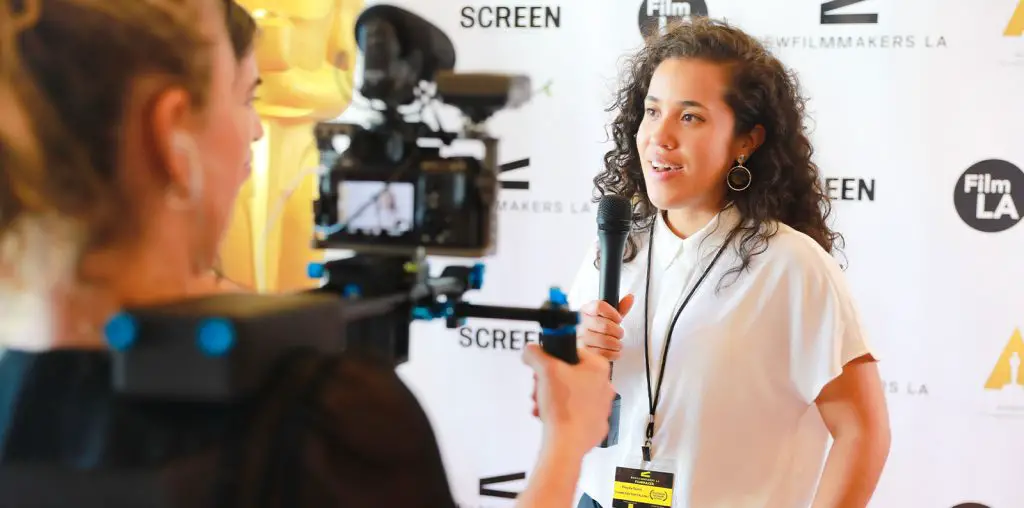
“I don’t think writers should write about answers, I think we should write about questions.”
“You have to write in order to write.” – Paul Haggis
In my computer, I’ve got nine pages of a play that’s going nowhere.
I don’t know what I want from this businessman in a hotel room. I only knew that I wanted to create someone who traveled a lot and to relive memories of hotel rooms I liked in my own travels with my family without feeling like I was wasting time doing only that.
The obvious answer to that kind of work stoppage is to read more plays, and by that effort, develop a voice for a character through what others have created. I’ve been doing that. But it’s also necessary to wonder how others handle the day-to-day mental trek of figuring out what they want to say, either with their own words or those words that they have their characters speak.
Now, I’ve read a lot of books in the past year or so about playwriting, but the process isn’t made easier by that. And aspiring and current screenwriters likely have books on their shelves that they have consulted, but “The Dialogue” series of DVDs needs to be on those same shelves, next to the books, and perhaps consulted more often than those books.
Paul Haggis is the subject of this debut DVD, hosted by Mike De Luca, the former head of New Line Cinema. De Luca is such a good host that you almost don’t notice his questions. By the time he finishes asking them, you’re already into what Paul Haggis is talking about, whether it’s dissecting his writing methods by way of “Crash,” or simply being awed by working with Clint Eastwood and also talking to Steven Spielberg. There are obligatory shots of De Luca listening, but when he comes back with another question, it’s a thankful purpose because we get to hear more of what Haggis has learned in his career, up to “In the Valley of Elah,” which is completed, according to the Internet Movie Database, but at the time of this release (2006), Haggis says that he and Mark Boal, the author of the article that inspired the film, haven’t yet worked out the story completely or thought of a title.
Haggis’s career is an interesting one, which included stints as a writer on “Diff’rent Strokes” and “The Facts of Life,” and his desire to go back into TV when movies proved not to have as much job security as working on a television show, and even running it, did.
But what Haggis offers, and other volumes do as well, I’m sure, is a lot for each writer to find. For that aforementioned play of mine, I have ideas for three further drafts, but what good are those without a first draft done or even without a rudder for the thing to move in a certain direction? I know in one draft I wanted to involve a woman, but how can women be written from a male perspective? Haggis has his answer for that and I guarantee, just on the basis of this first viewing (and many more viewings will come), inspiration will be found in some form. Just by listening to Haggis, a piece of a monologue came to mind and while its place in either that play or another is not certain, it feels like it belongs somewhere. And if not that for writer viewers, then it’s certainly inspiring enough to cause films mentioned to appear at the top of Netflix queues, such as “Million Dollar Baby,” either for the first time or another look.
The most novel feature of this interview is a segment called “The Object,” in which De Luca calls for Norris the Butler (Greg Littman) to bring out an object on a silver tray that is to be looked at by the screenwriter and a story is to be told at that moment. Haggis gets a silver pocketwatch and cribs respectfully from O. Henry. And while at first I was uncertain if my DVD player was freezing in the most inconvenient places, it turns out that at the end of each chapter on the DVD, at least this one, it returns to the menu featuring other chapters so we can either digest what we’ve just heard, or jump to another chapter, or go back to writing a script or play or even a novel, refreshed by what we’ve learned. Even if parts of the interview don’t relate to another kind of writing, work ethic is still covered here and certainly applies to novels and plays as well.
And if you’re not of a creating sort, “The Dialogue” knows you too and when words like “spec” and “post” are uttered, definitions appear onscreen of what they are, as well as giving context to whichever names are said, such as Gregory Hoblit, the director of “Hart’s War.” And for this kind of value, seek this out as well as the other DVDs in the series, which include Stuart Beattie, Billy Ray, John Hamburg, Paul Attansio, and many others. If all the known screenwriters of Hollywood are to be interviewed for posterity, this is the way to do it. To learn about the inner workings of Hollywood, this is where that tour is found. To try to push one’s own attempts at art out into the world, this is where to listen and learn.
